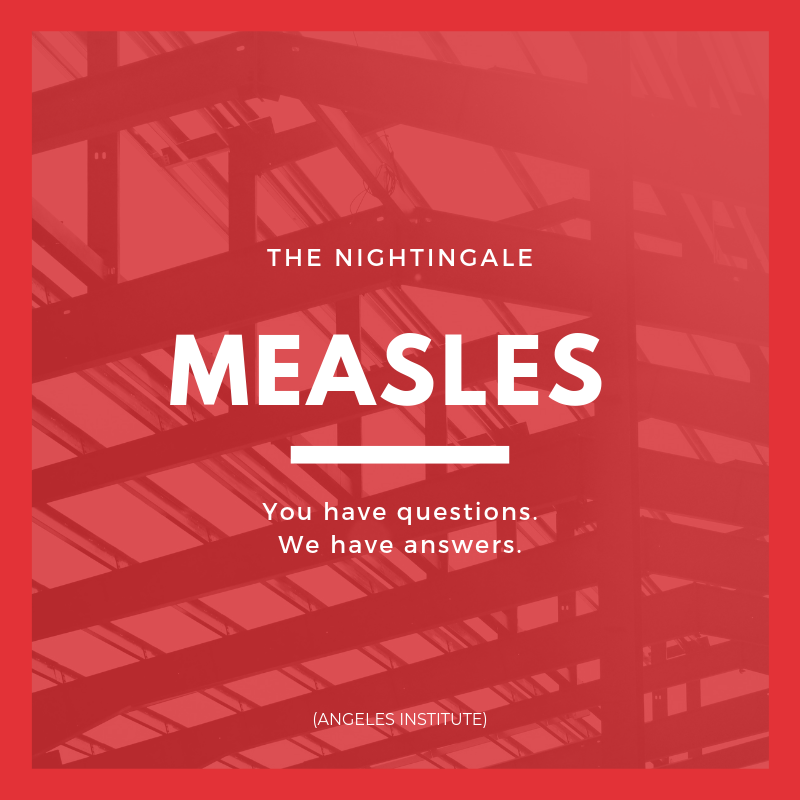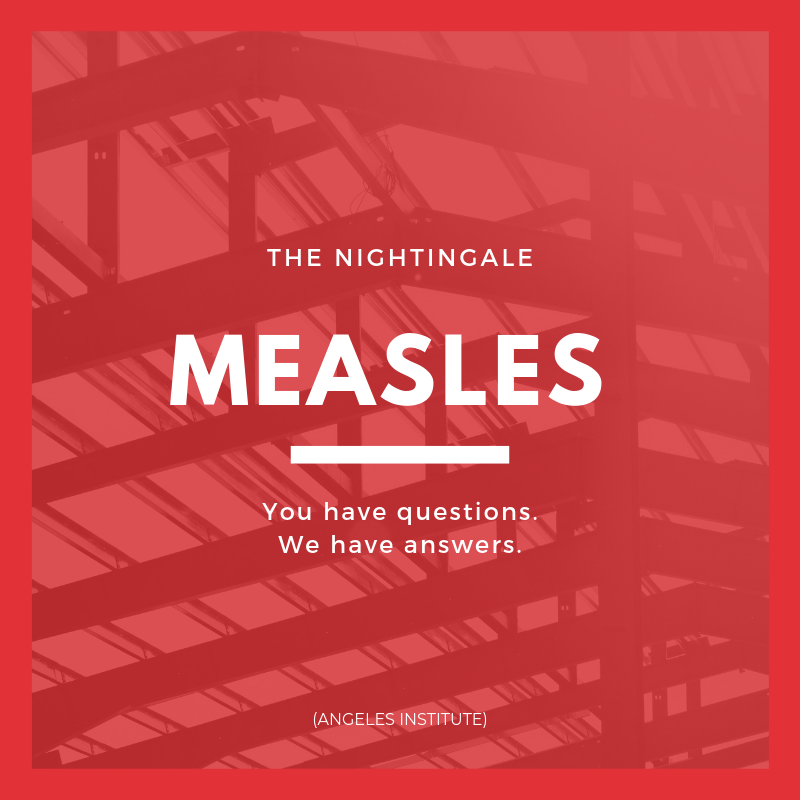Measles (Measles morbillivirus)

What is it?
Measles is caused by "the measles virus, a single-stranded, negative-sense, enveloped RNA virusof the genus Morbillivirus within the family Paramyxoviridae." Humans are the natural host of the virus, with no known animal reservoirs.
The Measles virus infects the respiratory system and is considered highly infectious . It is spread through sneezing and coughing via close contact or "direct contact with secretions." Children under 5 years old and adults older than 20 years of age are especially vulnerable to complications.
Who is most at risk?
- Un-vaccinated children and adults: Children and adults with compromised immune systems are most at risk.
- International travelers: Measles is a common childhood infection in developing countries, especially in parts of Africa and Asia still. Always consult with your doctor for any required or recommended travel vaccines in advance.
- Having a vitamin A deficiency: This deficiency can cause more severe symptoms and complications.
What are the symptoms?
The infection occurs over a period of two to three weeks in the following sequence.
- Infection and Incubation: 10-14 days; no symptoms.
- Nonspecific Signs and Symptoms: 2-3 days; mild to moderate fever, often with a persistent cough, runny nose, inflamed eyes, and sore throat.
- Acute Illness and Rash: Over the next few days; the face breaks out in a rash first. Small red spots and bumps in tight clusters cover the skin down the arms and trunk, then over the thighs, lower legs and feet. At the same time, fever rises sharply, often as high as 104 to 105.8 F (40 to 41 C). The rash gradually fades, first from the face and last from the thighs and feet.
- Communicable Period: 4 days before and after rash appears is when a person is most infectious.
Are there complications?
- Pneumonia: About 1 in 20 children infected get pneumonia, which is the most common cause of death from measles in young children.
- Ear infection: Experienced by about 1 in 10 children and can result in permanent hearing loss.
- Encephalitis: About 1 in 1,000 people with measles develops a complication called encephalitis (inflammation of the brain) that could occur right after measles infection or months later. Encephalitis can lead to convulsions and can leave the child deaf or with intellectual disability.
- Pregnancy problems: Can cause preterm labor, low birth weight, and even maternal death.
- Bronchitis, laryngitis or croup: Can cause inflammation of your voice box (larynx) or inflammation of the inner walls that line the main air passageways of your lungs (bronchial tubes).
What is herd immunity?
Did you know measles has virtually been eliminated in the United States? Even though not everyone has been vaccinated, we have all benefited from herd immunity.
Herd immunity (or community immunity) is a form of indirect protection that happens when a higher proportion of vaccinated individuals are immune to a disease and effectively limit the spread of contagious diseases to more vulnerable, non-immunized populations.
Unfortunately, herd immunity is weakening due to the drop in vaccination rates. The rate of measles in the U.S. recently jumped from an average of 60 cases a year to 205 cases annually.
How can you prevent infection?
There are only two ways to prevent measles infection and spreading.
- Isolation: Especially during the communicable period, people with measles should strictly limit interactions with people and may have to separate themselves from non-immunized people within their house.
- Vaccination: Anyone born after 1957 and infants older than 6 months old should be vaccinated. Always consult with your doctor on vaccination schedules for your child, especially before international travel.
Sources
Measles Morbillivirus (Wikipedia)
